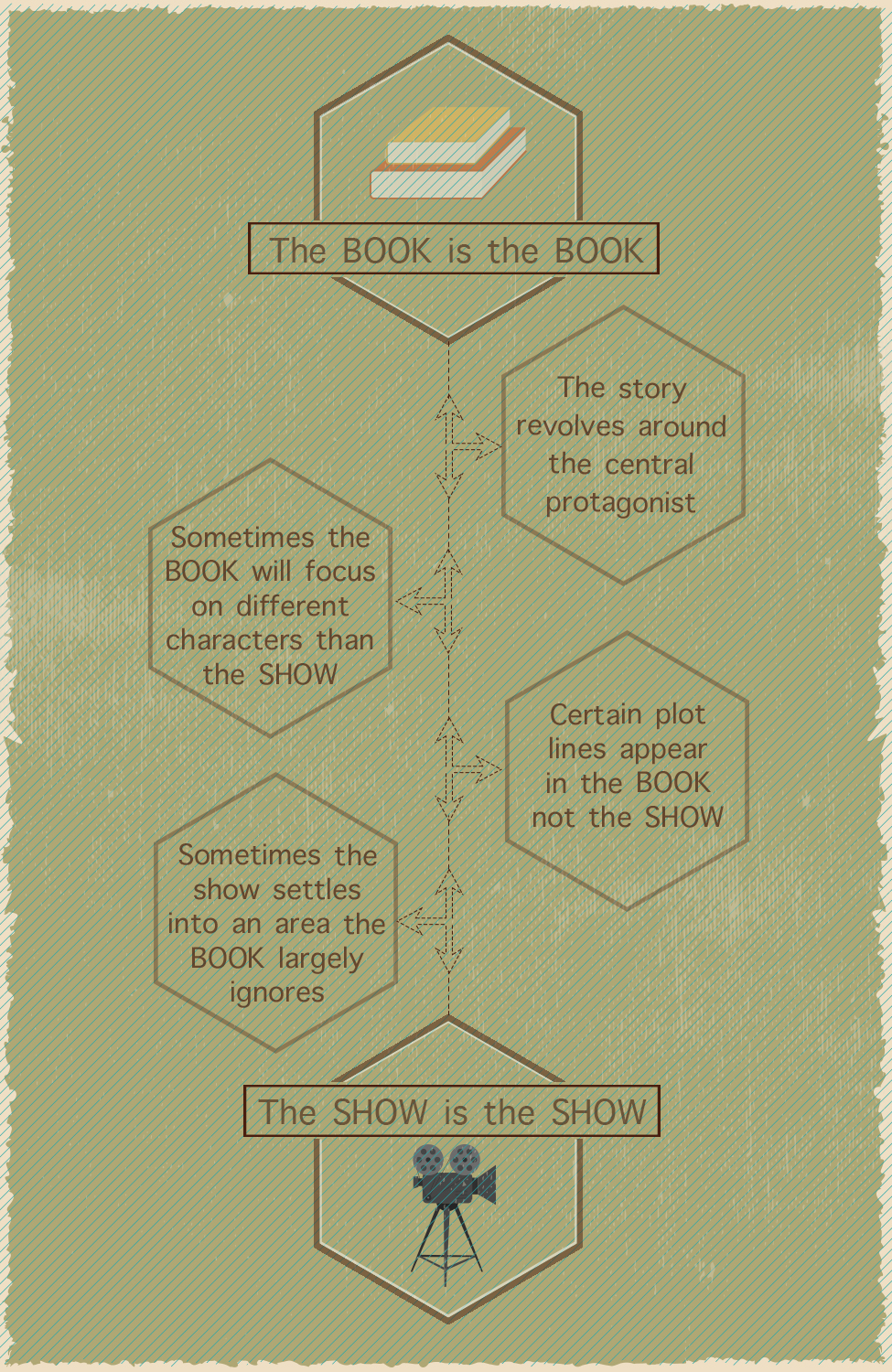Long form television has allowed previously unadaptable written works to be brought to the screen. Great stories like Game of Thrones, The Expanse, The Magicians, and Jonathan Strange and Mr. Norrell now exist in two forms of media. But the TV versions of these stories often create controversy because of their inability to stay 100% faithful to the narrative.
George R.R. Martin, author of Game of Thrones, has responded to this controversy, opting to defend the show from fanboy angst. Martin says:
The show is the show, the books are the books; two different tellings of the same story. There have been differences between the novels and the television show since the first episode of season one…HBO is more than forty hours into the impossible and demanding task of adapting my lengthy (extremely) and complex (exceedingly) novels, with their layers of plots and subplots, their twists and contradictions and unreliable narrators, viewpoint shifts and ambiguities, and a cast of characters in the hundreds…Prose and television have different strengths, different weaknesses, different requirements…And yes, more and more, they differ. Two roads diverging in the dark of the woods, I suppose… but all of us are still intending that at the end we will arrive at the same place.
The differences between Game of Thrones on TV and Game of Thrones in the books are like the differences between Bible stories and the experience of the Holy Spirit in real life. That’s right—we live in the “show” adaptation of God’s Story. There is a book—a great book—but the real life adaptation doesn’t totally line up. There are situations in our lives for which there are few referents in scripture—same-sex marriage? transgenderism? ISIS?—and there are significant passages of scripture that have little to no bearing on contemporary life—kinsman redeemers? purity rituals? covenantal nomism?
The main thing to keep in mind is that the show is the show, and the book is the book. Two different tellings of the same story. Two different journeys along the same path. Eventually, we’ll arrive at the same place: the hero will triumph, our enemies will be defeated, and we will reign forever in the presence of the Almighty. But between here and there, it probably won’t hurt for us to keep a few things in mind:
- The Story revolves around the central protagonist. Guess what? It’s not you. Or me. In the Story of God’s plans to heal the world, only King Jesus gets to be the hero. It’s his Story and we, at best, are supporting cast members.
- The Book will sometimes focus on characters that don’t appear in the Show. The Patriarchs will not make an appearance in our contemporary setting, nor will Patriarchy—not like that, not anytime soon. Some of us grew up loving those stories—the war stories in the First Testament—but we’d best be careful not to project those plotlines over our modern international conflicts, over our domestic issues, and over our society at large.
- Certain plot lines appear in the Book that don’t appear in the Show. My favorite plot lines from the Book all center on the supernatural: Samson, Moses, the miracles of the prophets, and the power encounters between Jesus and the seas. But those things happen very rarely in our world, especially in North America. You could argue that we get what we need, not what we want, but I’m not comfortable determining why those plot lines have been redacted—just acknowledging they’re not as strong in the Show.
- Sometimes the Show settles into an area the Books largely ignore. There is little, for example, in the scriptures about melancholy or depression, but sometimes we spend large swatches of our lives dwelling in our misery. We imagine we’re like Job, forgetting that Job is only one small part of the Story, and he isn’t even the central character. The important thing to remember is that the Show must keep moving.
There are, of course, many other comparisons we might make between Game of Thrones and following Christ, not all of which would be appropriate or good. But the point remains—the show is the show and the book is the book. They’re two tellings of the same Story: God’s plans to heal the world.
And we better know that Story backward and forward in order to keep our adaptation as faithful as possible.
fossores
Related posts
Categories
Category Cloud
Tag Cloud
Recent Posts
- Victors and Victims November 6, 2018
- 3 Hacks for Happiness October 29, 2018
- Hope Against Death September 20, 2018
- The Shape Of The Cross September 19, 2018


